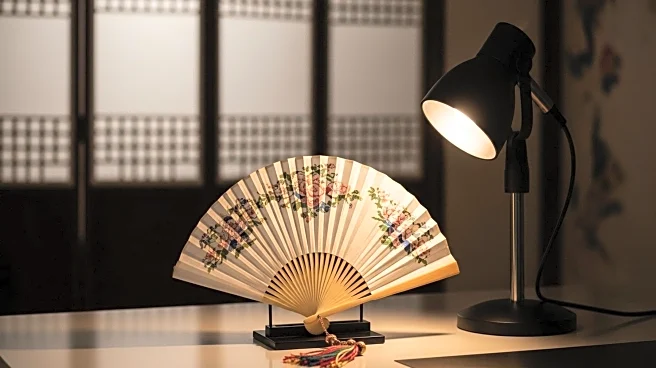What's Happening?
J.Y. Park, the CEO of JYP Entertainment, has been appointed as co-chair of South Korea's Presidential Committee on Popular Culture Exchange by President Lee Jae Myung. The committee aims to promote South Korean culture internationally while increasing domestic exposure to global pop culture. Park, a prominent figure in the K-pop industry, expressed his initial hesitation about taking on a government role but decided to embrace the opportunity given the current global interest in K-pop. Park has been influential in the industry since founding JYP Entertainment in 1996, launching successful artists like TWICE and Stray Kids.
Why It's Important?
Park's appointment signifies the growing influence of K-pop and South Korean culture on the global stage. As a leader in the entertainment industry, Park's involvement in the committee could enhance cultural diplomacy and create new opportunities for Korean artists worldwide. This move may also strengthen South Korea's soft power, leveraging cultural exports to foster international relationships. The appointment reflects the strategic importance of cultural exchange in South Korea's foreign policy, potentially benefiting the country's economy and global standing.
What's Next?
With Park at the helm, the committee is expected to develop initiatives that further integrate South Korean culture into international markets. This could involve collaborations with foreign artists and cultural institutions, expanding the reach of K-pop and other cultural exports. The committee's work may also influence domestic policies to support the entertainment industry, ensuring continued growth and innovation. Stakeholders in the industry, including artists and producers, are likely to watch closely for new opportunities arising from these efforts.
Beyond the Headlines
Park's transition from entertainment to politics highlights the evolving role of cultural figures in governance. This shift may inspire other artists to engage in political and social issues, potentially leading to a more diverse representation in government. The appointment also raises questions about the balance between cultural promotion and political agendas, as well as the ethical implications of entertainment figures wielding political influence.









